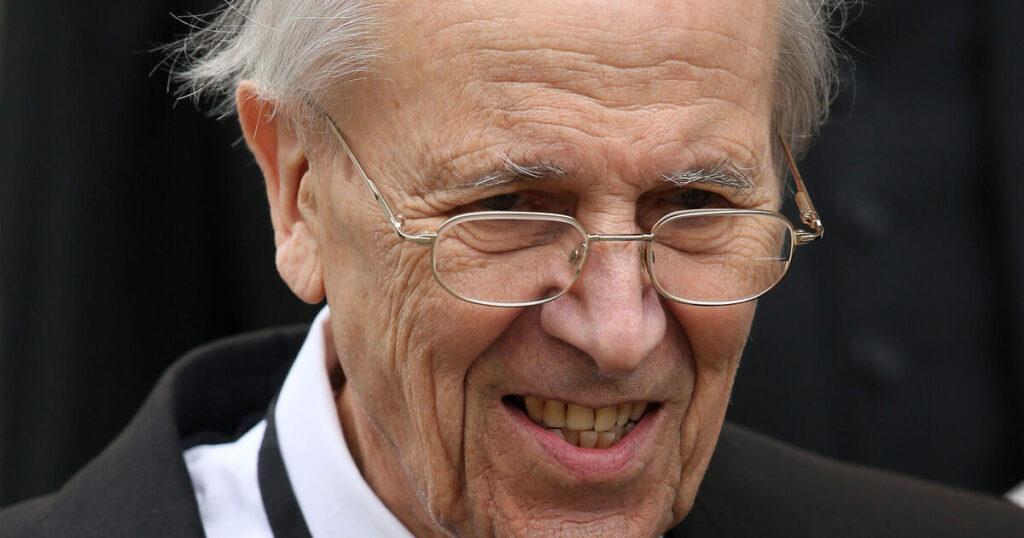Former British cabinet minister Norman Tebbit, a prominent figure in Margaret Thatcher’s government, has died at the age of 94, his son announced.
Tebbit was a key political ally of Thatcher and a significant force in Conservative politics for decades.
As employment secretary, he confronted trade unions, and as Conservative Party chairman from 1985 to 1987, he contributed to Thatcher’s third election victory.
He sustained serious injuries in the 1984 Brighton bombing, which tragically left his wife, Margaret, paralyzed.
His son, William Tebbit, stated that his father passed away “peacefully at home” on Monday night.
Conservative leader Kemi Badenoch acknowledged Tebbit’s impact, saying, “Norman Tebbit was an icon in British politics and his death will cause sadness across the political spectrum.”
She added, “He was one of the leading exponents of the philosophy we now know as Thatcherism and his unstinting service in the pursuit of improving our country should be held up as an inspiration to all Conservatives.”
Badenoch emphasized his “stoicism and courage” following the Brighton bombing and his dedicated care for his wife, highlighting that he was “first and foremost a family man who always held true to his principles.”
Badenoch further noted, “He never buckled under pressure and he never compromised.”
Tebbit was known for his uncompromising approach and played a significant role in the economic and social reforms of the 1980s.
Following inner-city unrest in 1981, his remarks about his unemployed father getting “on his bike” to find work led to the “Onyerbike” nickname, perceived by some as a sign of Conservative insensitivity to unemployment.
He famously retorted, rejecting the notion that violence was a natural response to unemployment: “I grew up in the Thirties with an unemployed father. He didn’t riot. He got on his bike and looked for work, and he kept looking till he found it.”
Described by Michael Foot as a “semi-house-trained polecat,” Tebbit was also nicknamed the “Chingford skinhead.” His Spitting Image puppet depicted him as a tough character, an image he enjoyed, as “he was always a winner.”
In 1990, he proposed the “cricket test” for British Asians, suggesting their support for the UK in international cricket as an indicator of loyalty. This led to accusations of racism.
His Euroscepticism also caused challenges for John Major’s Conservative leadership, marked by divisions over European policy.


